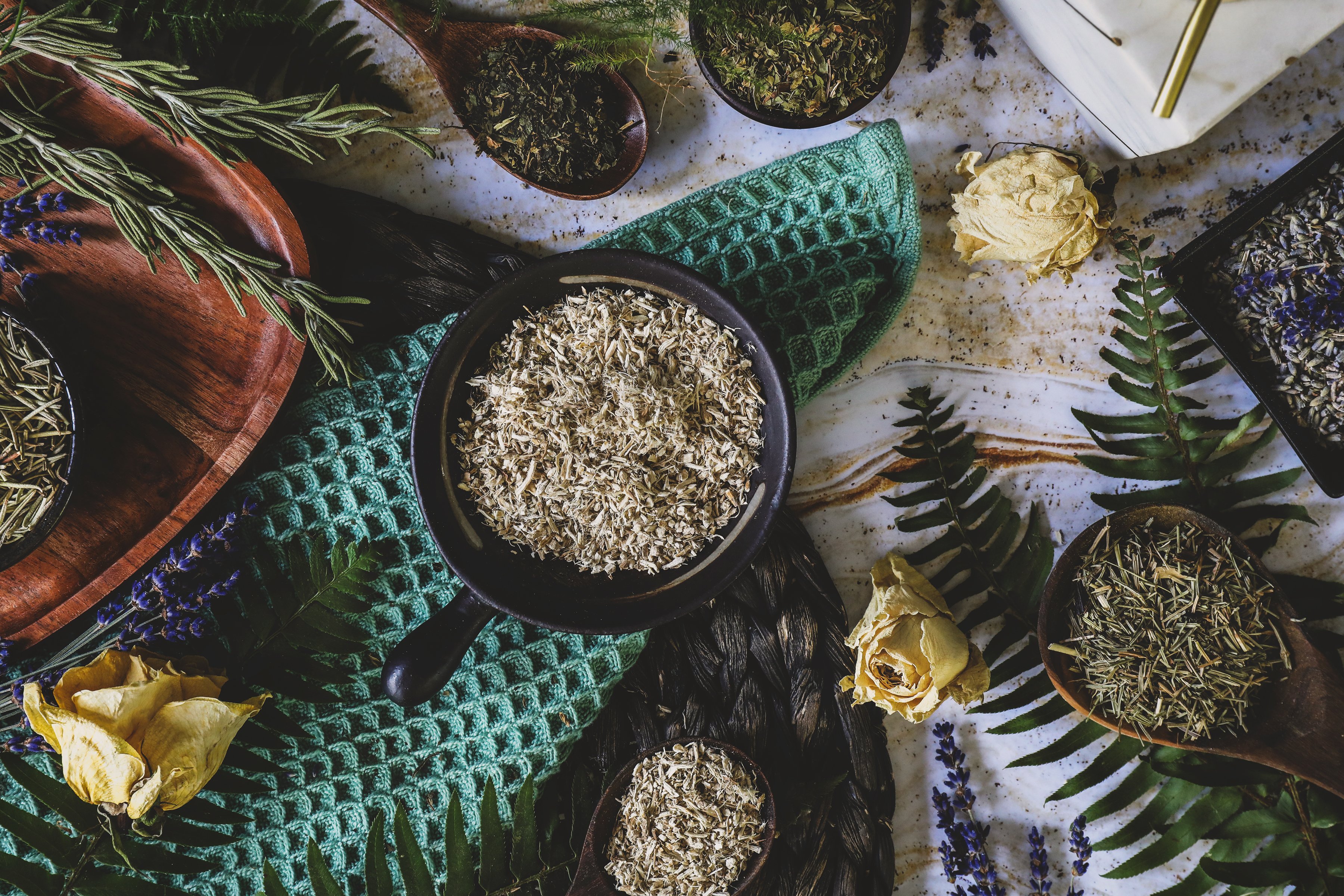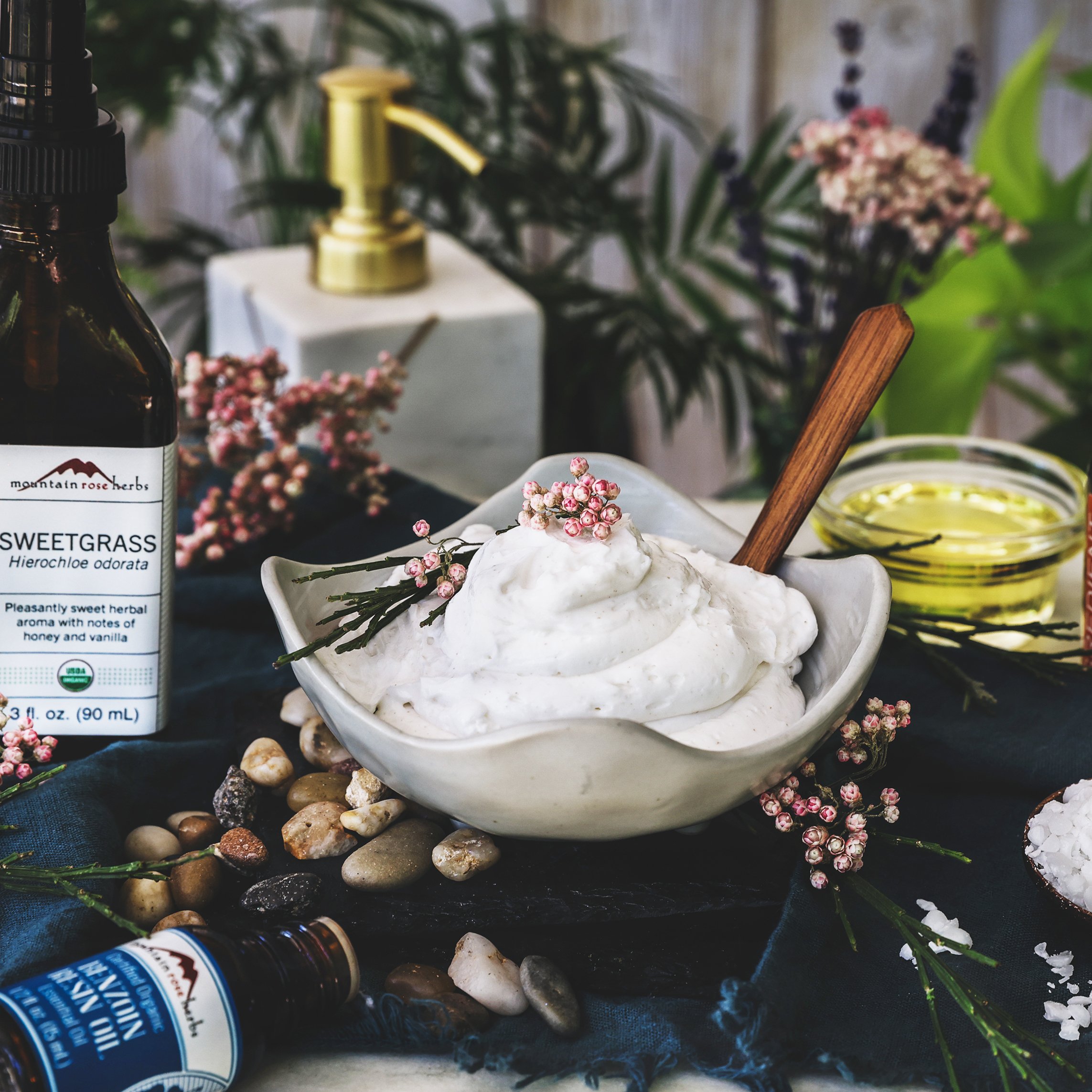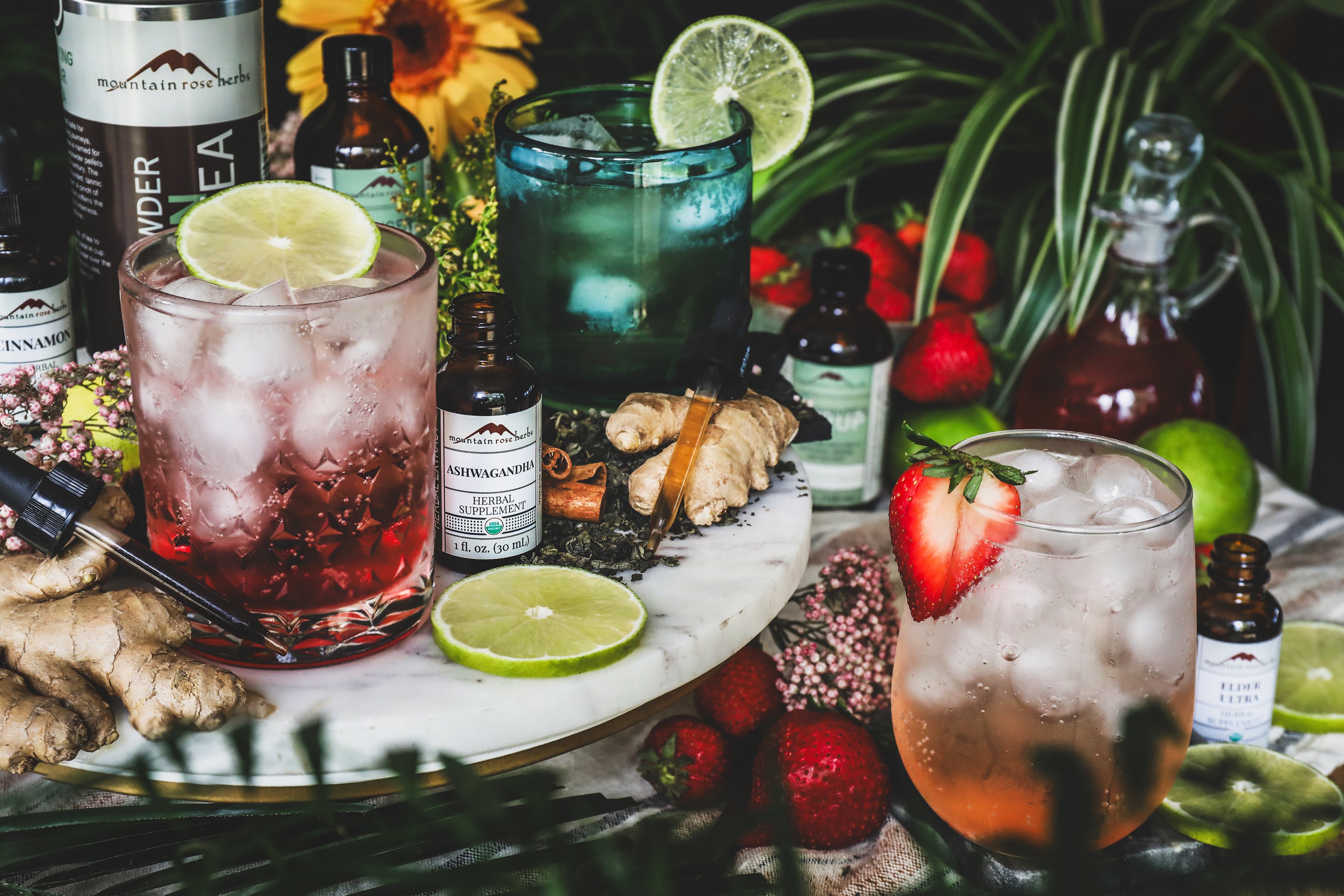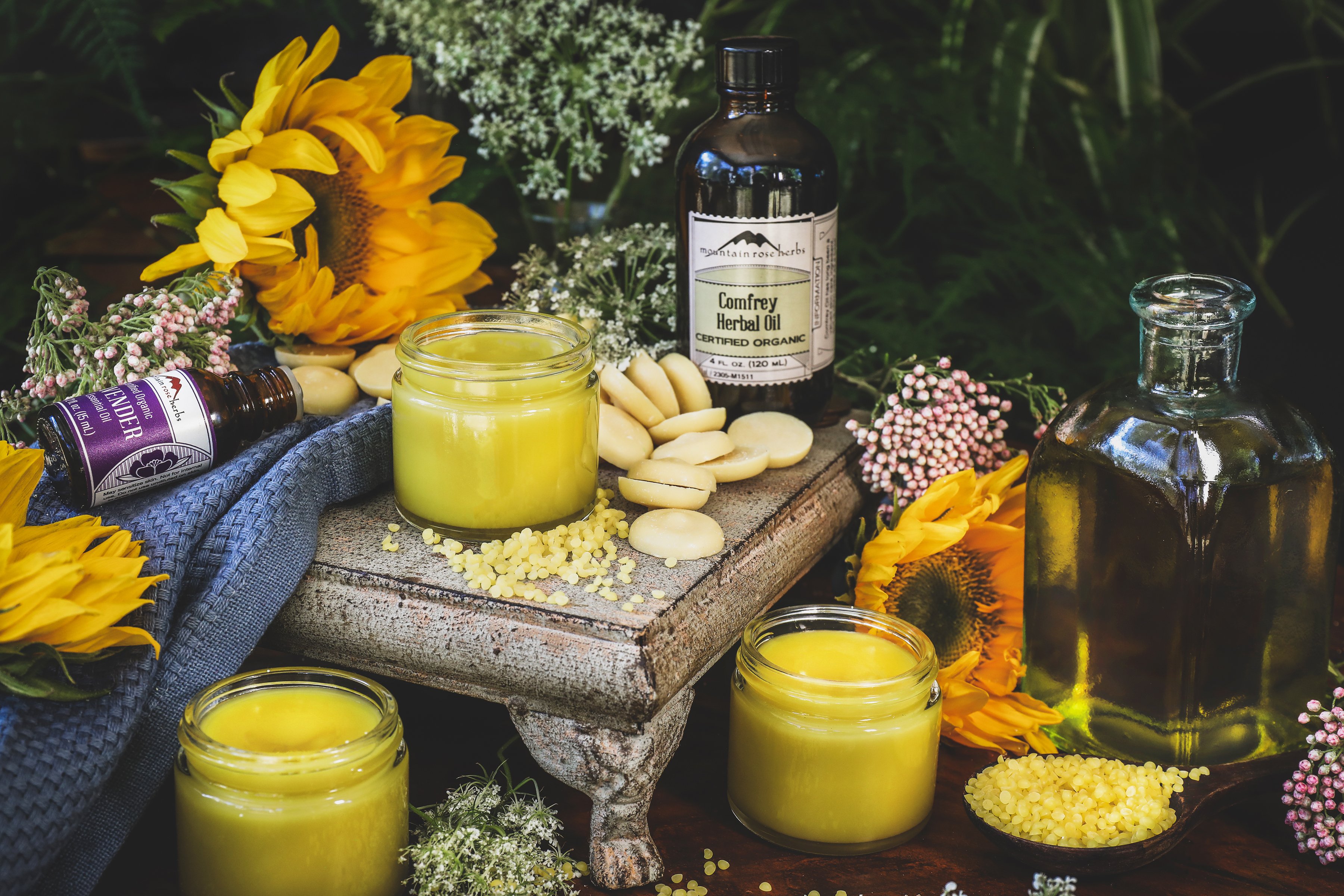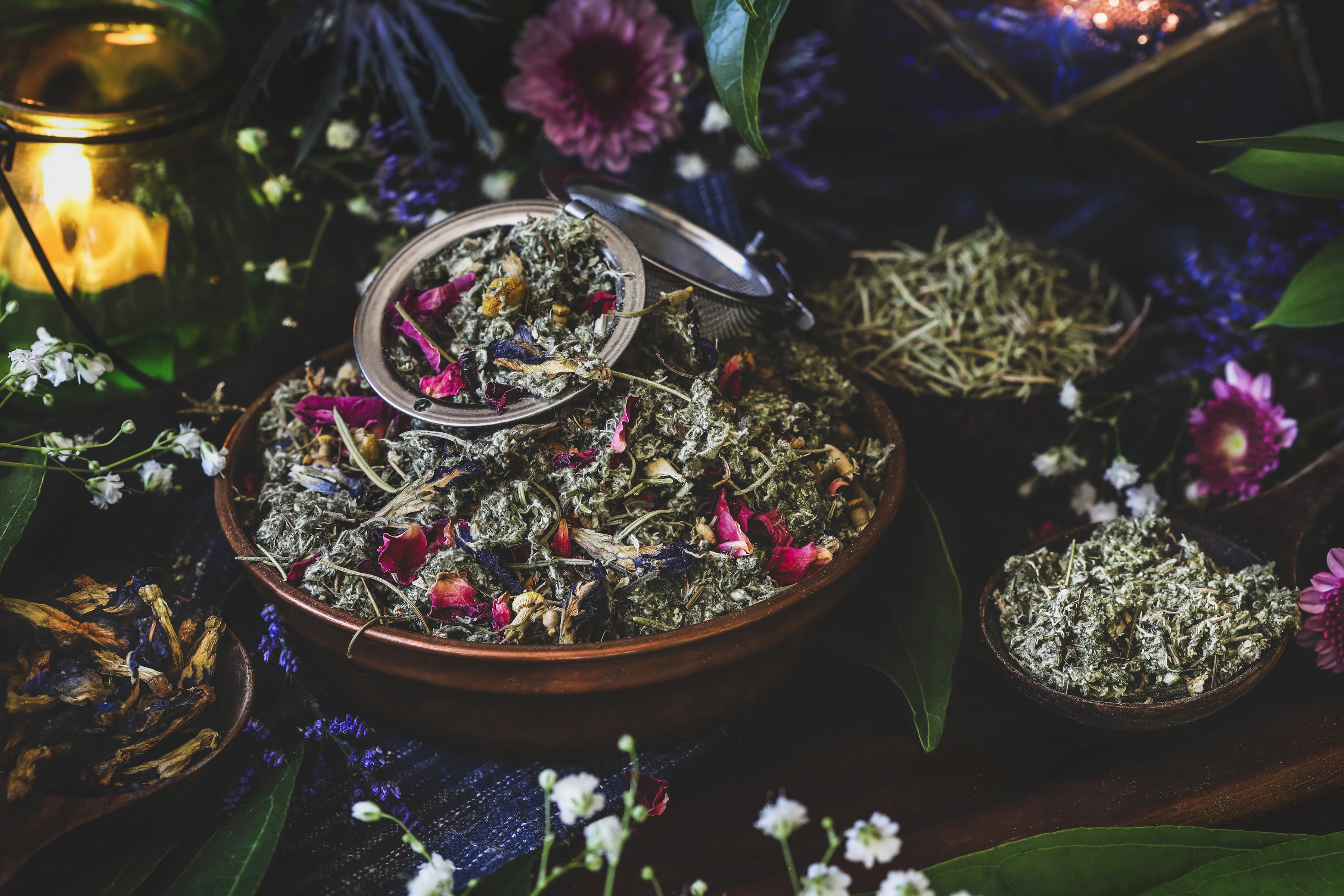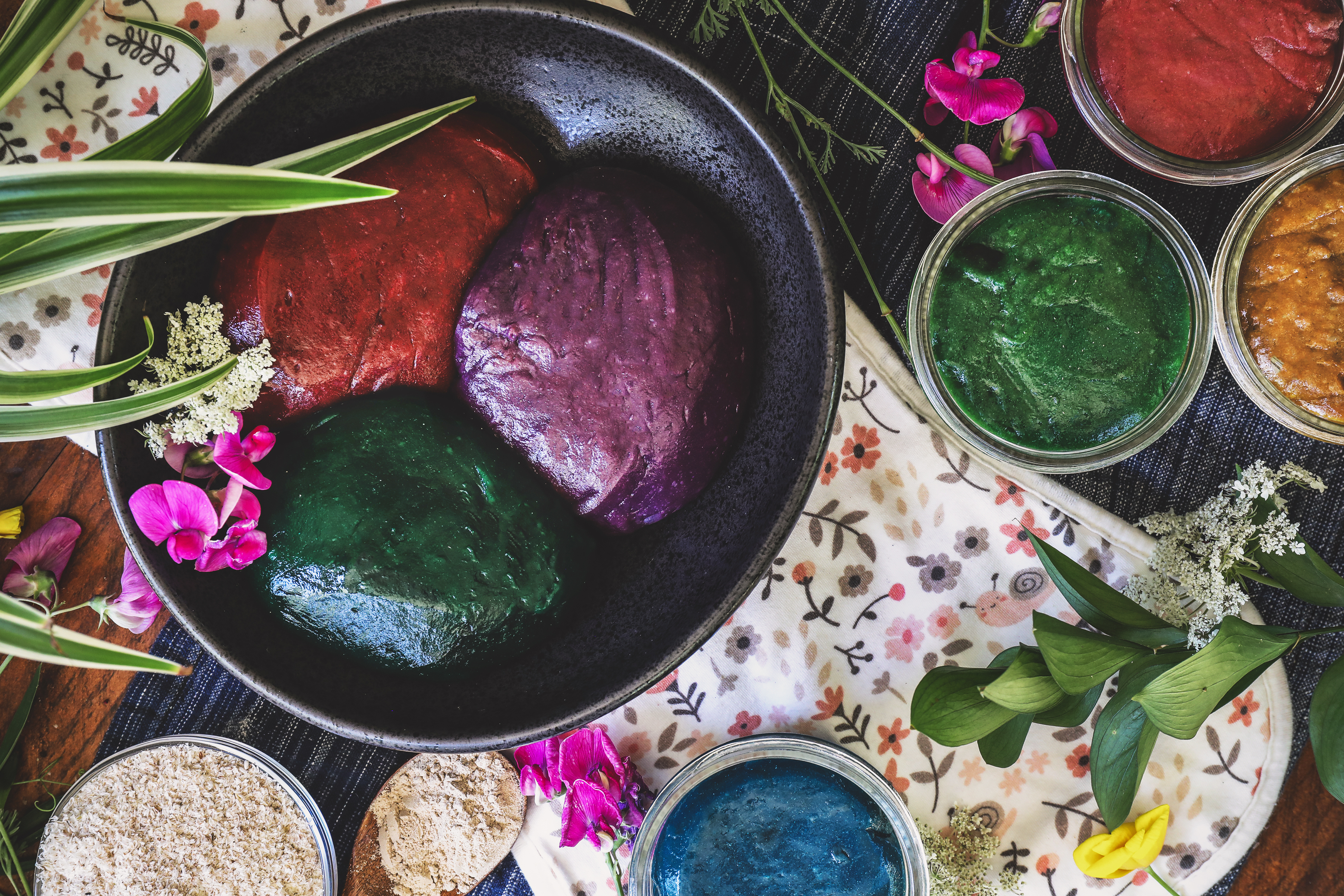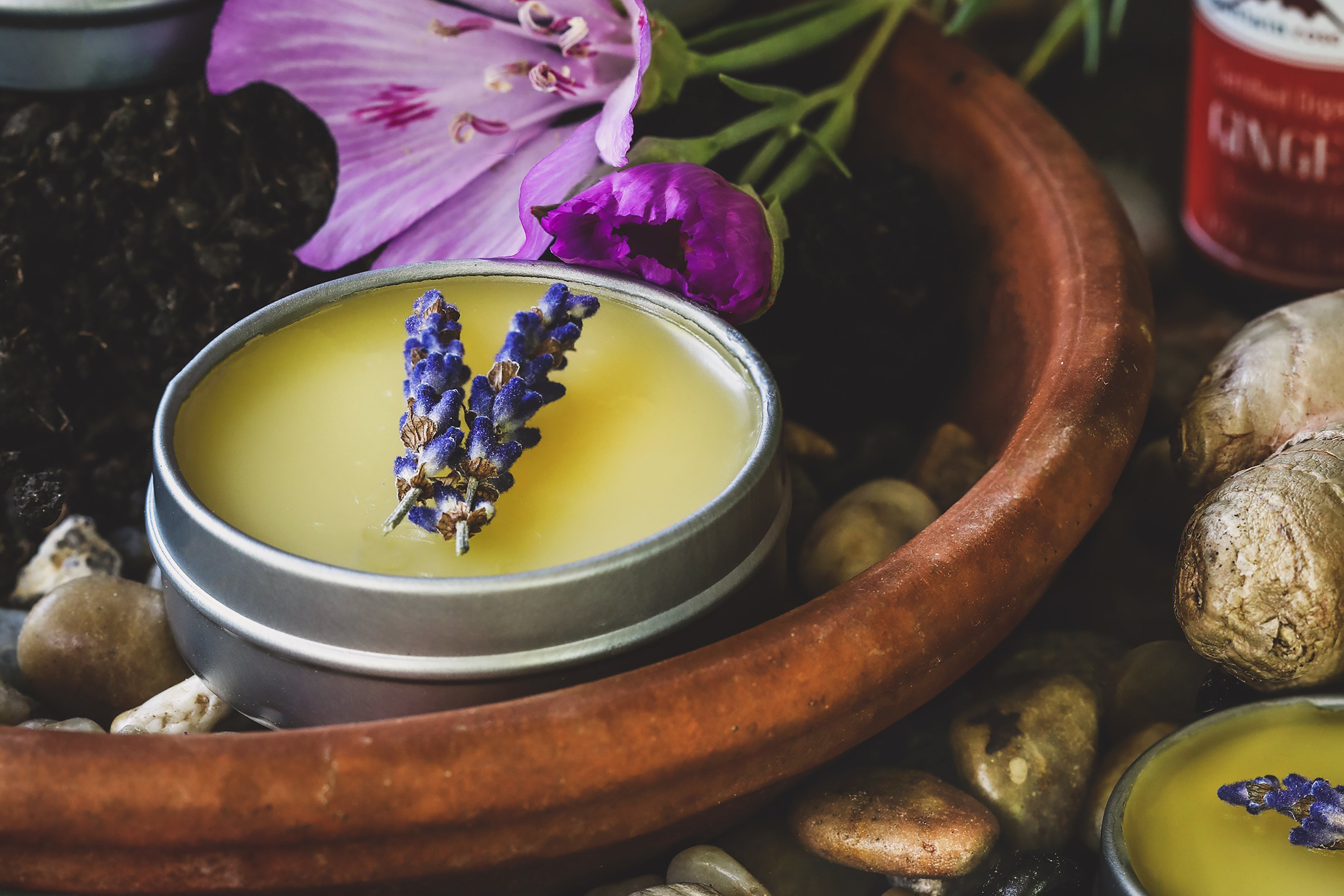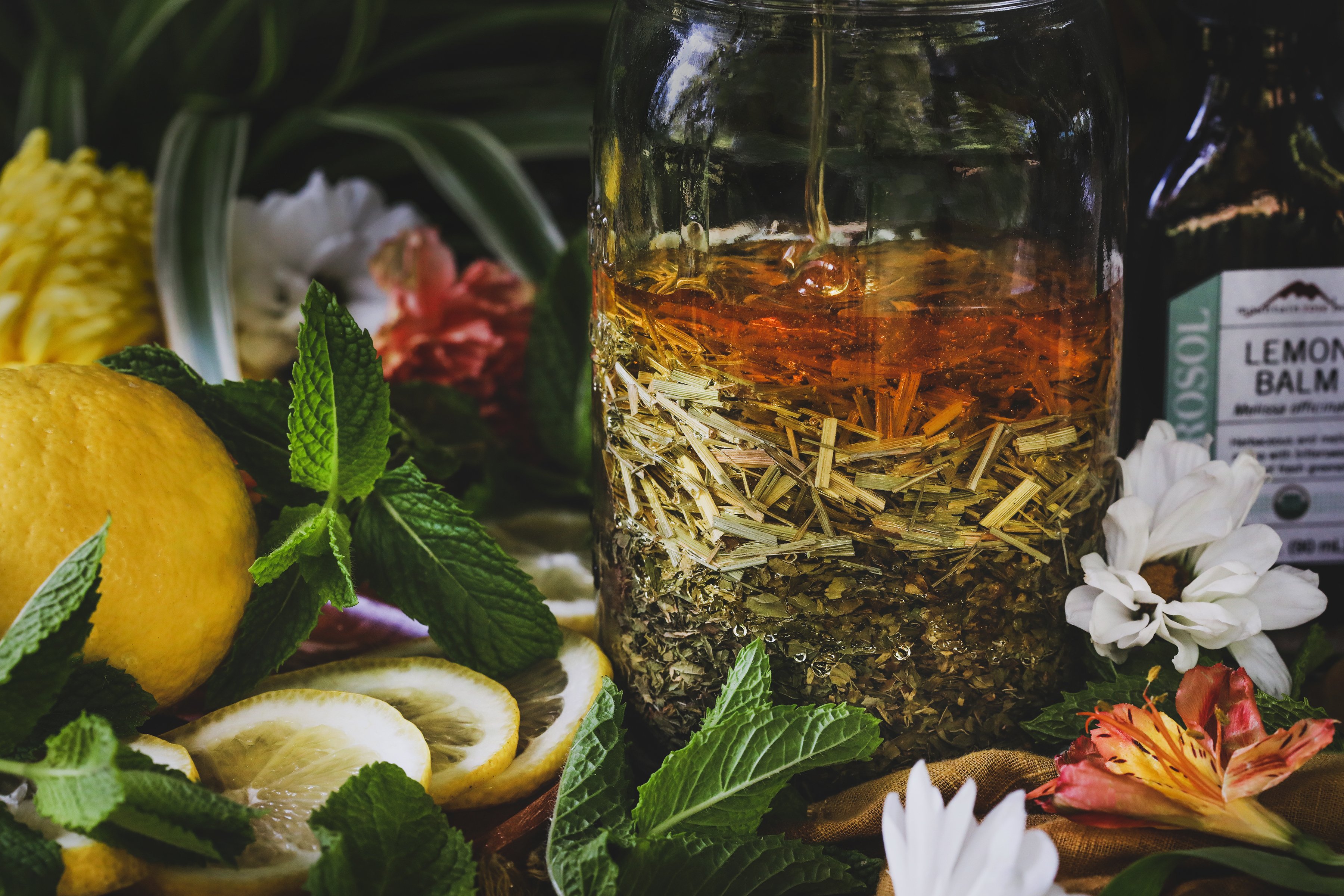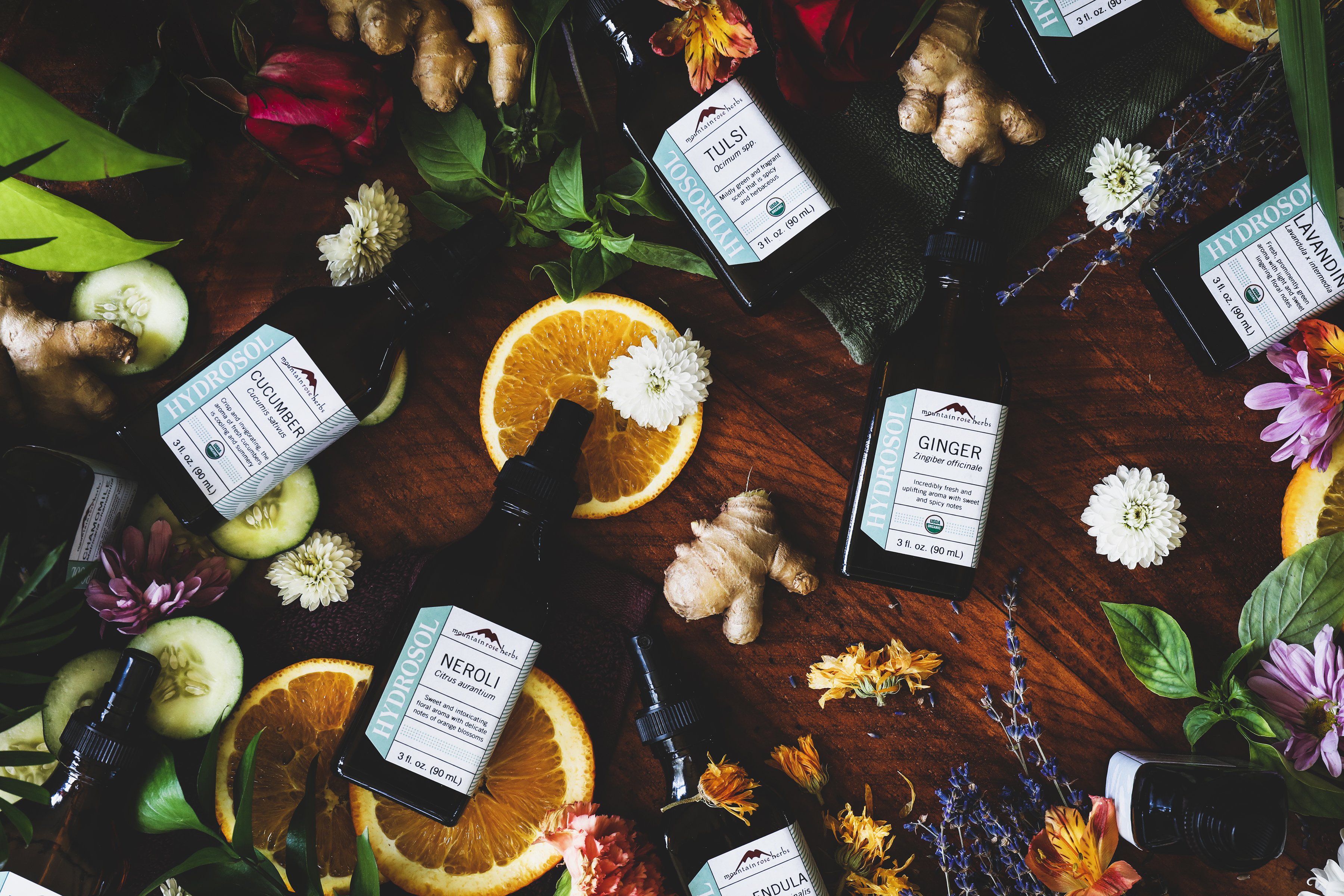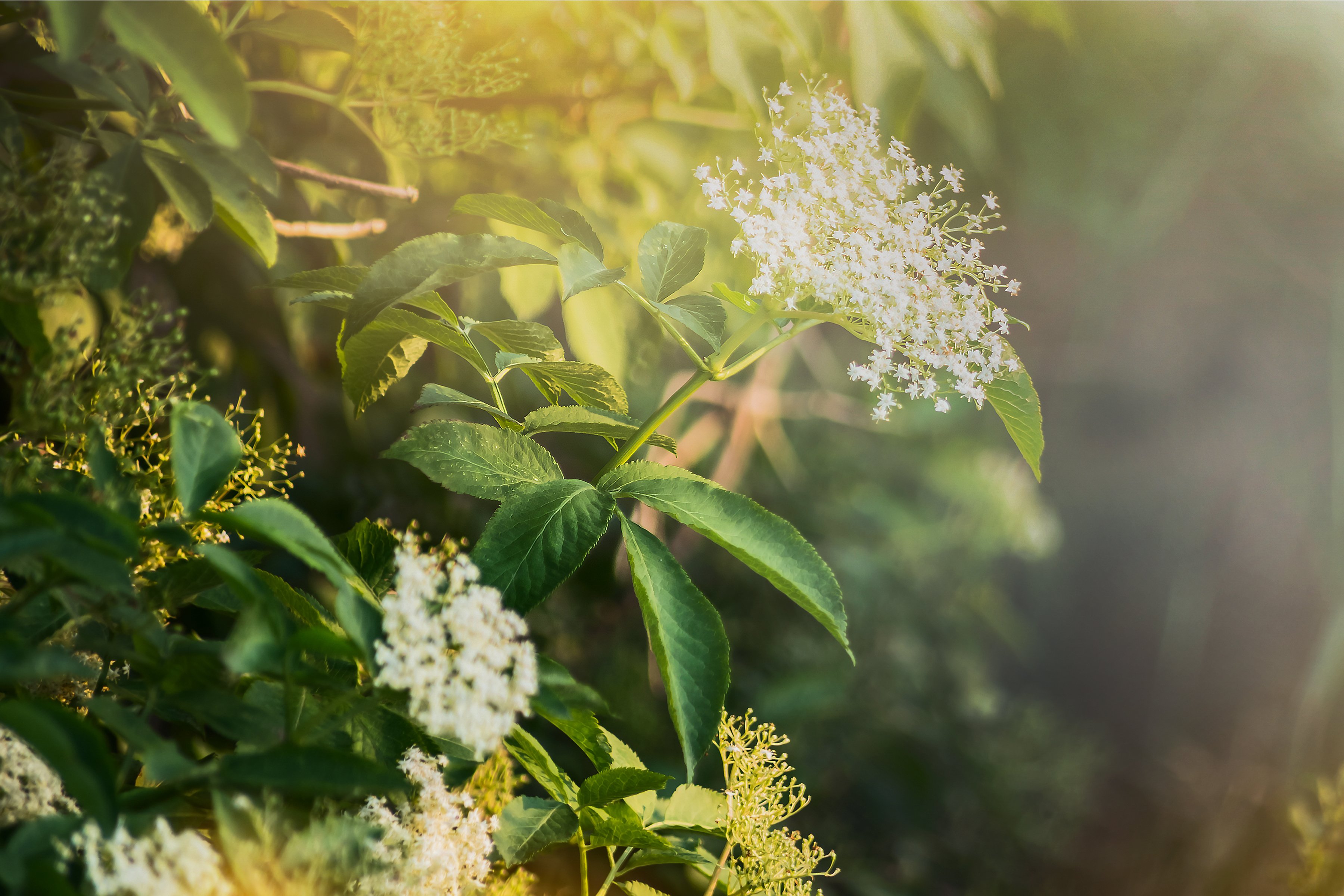Since time immemorial, people have looked to herbs to support healthy, beautiful hair. In the modern world, however, mainstream haircare products are typically made from chemicals: including sulfates, parabens, synthetic fragrances, formaldehyde, phthalates like DEHP, and other toxic ingredients. When we use these products, we increase our exposure to potentially harmful chemicals every time we wash and/or style our hair. It behooves us to take a look at natural herbal haircare practices. As well as being chemical-free, the best haircare herbs are time-tested; they have been used by humans for thousands of years. Herbal blends, infusions, extracts, and other botanical formulations bring the power of nature to nourish and stimulate the scalp, strengthen and moisturize follicles, soften hair, restore shine and bounce, help with manageability, and more.
Read More
Perhaps every herbalist or skincare formulator has a recipe that once wholly intimidated them. Homemade lotion was one of those for me. I had a pretty epic and expensive DIY lotion fail once, and it took me a long time to build up enough confidence to try blending water and oil into something usable again. Mountain Rose’s organic sweetgrass hydrosol was the impetus to suck up my courage and try again. Its subtle, honeyed aroma has a wonderfully green-earth undertone that makes it a perfect base for a variety of skincare formulations, from facial toners to body sprays to lotions. In this simple lotion recipe, I love it with just a touch of vanilla in the form of organic benzoin resin.
Read More
When the thermometer starts pushing up into the 90s, my good attitude takes a corresponding nosedive. As a Western Oregon pluviophile, I prefer my summer heat in small doses, preferably bookended by big cooling rain storms. So here we are in the annual dog days of summer when the days and nights are too hot, there do not appear to be any rainstorms on the horizon, and my whole self is on a 24/7 quest to pretty much always have something cold, hydrating, and nourishing in my hand to refresh my body and soul. Not only does this wonder-beverage need to be a delicious vehicle to support deep hydration and body and mind wellness, but it also has to be easy to whip up at a moment's notice. Fortunately, I am married to a talented mixologist. When the weather gets hot, he makes sure to have all the ingredients on hand for easy beat-the-heat carbonated drinks that include herbal extracts and syrups for an added wellness boost.
Read More
With the heat and sun come sunburn, heat rash, heat exhaustion, and even heat stroke. There are things we can do to prevent these from happening and natural remedies for when they do.
Read More
In modern Western culture, people often disregard dreams as mere fluff that our brains discard as we slumber. But throughout history and cultures, humans have valued dreaming in different ways. Dreams are seen as a door or bridge to the spirit world or the subconscious. They are often full of symbology from our lives, become outlets for our deepest concerns and fears, or offer us tools for self-reflection and a map to our current state of mind and heart. Although we can dream at any stage of sleep, our most vivid dreams occur during our REM (rapid eye movement) sleep cycle, so depending on how well we sleep, we may spend more than two hours each night in some form of dream state. Sleep researchers tell us that deep non-REM sleep rests our bodies and refills our tanks to start another day and REM sleep is crucial for dreaming, memory consolidation, emotional processing, and healthy brain development.
Read More
Slime—that strange substance that defies Newton’s laws of viscosity—has been a staple in store toy aisles for almost 50 years and the DIY versions have been around almost as long. The typical school-science-project slime recipe involves mixing either borax or contact lens solution with PVA glue and water. The science behind it is a chemical reaction between the polyvinyl acetate in the glue and the borate ions in the contact solution or borax, an action called cross-linking that results in a logic-defying substance that is a whole lot of fun to play with. However, fascinating DIY science aside, too much exposure to boron—which is the base of borax, boric acid, and also, ironically, that contact lens solution—can cause respiratory, skin, and eye irritation, and when ingested can lead to nausea, vomiting, and diarrhea. Note the caution on the front of a box of borax detergent: Caution: Eye irritant, may be harmful if swallowed. Needless to say, that DIY slime hack is not ideal for small children, particularly those who tend to taste-test things. Fortunately for the child in all of us, you can make slime from psyllium husk!
Read More
Spinach has been providing humans with bountiful nutrition for more than 2,000 years. By the time this cool-season annual reached western Europe in the 11th - 15th centuries, it was already an established crop and widely cultivated in the Middle East and Asia. It has long been considered the “Captain of Leafy Greens,” which is an apt title for this vitamin- and mineral-packed veggie. However, because our bodies cannot metabolize spinach quickly, it can produce gas, bloating, and stomach cramps. This is not to say we shouldn’t eat raw spinach; we absolutely should because it’s loaded with all kinds of other essential nutrients like vitamin C, niacin, potassium, etc. that are more available to our bodies when eaten raw. But to capture all of the benefits of spinach, it behooves us to eat it in other ways as well. Dried spinach is a delicious, high-nutrition option!
Read More
This time of year, I’m reminded of my love for herbal salves, and in particular, this Gardener's Salve. The blend has been in the Mountain Rose recipe book for many years and is one that I turn to each spring and summer. Between planting, weeding, and pruning, my hard-working hands reach for this DIY hand balm time and time again. Being with the plants does wonders for my emotional wellbeing so taking the proper steps to ensure I can do it in optimal comfort and for many years to come is very important to me.
Read More
When my husband and I got married, we wanted to offer a full mocktail bar for our wedding guests. I love using oxymels for mocktails: the traditional syrup made from an acid and a sweetener (usually vinegar and honey) lends a complex flavor that up-levels any drink. They are also a yummy way to serve herbs to friends and family.

Hydrosols are high quality, distilled botanical extracts, not to be confused with the “floral waters” you might have seen for sale that are often just water combined with essential oils. Hydrosols are beloved by the herbal community for their ease of use and versatility in aromatherapy, herbal body care formulations, therapeutic applications, cosmetics, and household recipes. They add variety and scope to our herbal practices, and we appreciate the added safety they give us when working with children, elders, and pets. Although they are made using the same distillation process as essential oils, they are more sustainable because distillers get significantly more hydrosol per distillation. But not all hydrosols are created equally. We’re excited to tell you more about these lovely plant waters.

It’s almost elderflower season! When I excitedly announced this among friends recently, they all gave me a grin-and-eye-roll combination that, if I’m being honest, I receive on a regular basis from this bunch. It’s all done in good fun—it’s no secret that I choose to live my life much slower than the modern-world pace, as closely aligned with the turning of the seasons as possible. My favorite people may tease me about my Luddite ways and seasonal delight over things like elderflowers, but they aren’t fooling anybody. They’re always the first ones to belly up for our refreshing cordials and festive cocktails and, because I let most of my homegrown elderflowers turn into berries, they are also the ones who slyly check in throughout the year to see if I’ve got any cordial made with the dried elderflowers that sustain us when the fresh flowers are long gone. Here’s to elderflower cordial and sharing with friends!
Read More

